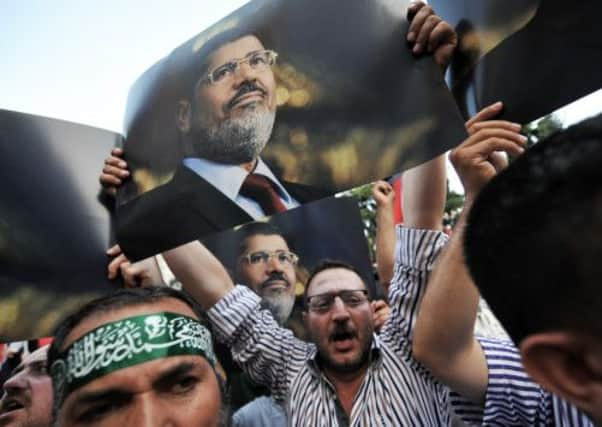Leaders: Egypt crackdown casts shadow | RBS split


The prognosis for Egypt now is deeply worrying. Those being brutally suppressed by the Egyptian police and armed forces are the supporters of a legitimately elected democratic government. Is there any material difference between the anti-democratic actions of the authorities now and similar anti-democratic suppression during the Mubarak era?
Whatever the legitimate objections to the often wrongheaded and chaotic rule of the Muslim Brotherhood, the tactics on display on the streets of Cairo yesterday were plain wrong. They were inflammatory and brutal, and they threaten to send the country into a spiral of violence and instability.
Advertisement
Hide AdAdvertisement
Hide AdThe declaration of a state of emergency will be widely regarded as a move to smother dissent, rather than restore order. The lesson from the region and elsewhere is that states of emergency tend not to be short-term affairs. They tend to drag on, suiting – as they inevitably do – the authoritarian powers that be.
What is needed is not more confrontation but an acceptance on the part of the authorities that clamping down hard on demonstrations and dissent will only make matters worse, both in the short and long term.
The pro-democracy protestors, having seen their elected president unceremoniously deposed, have a legitimate grievance. Depriving them of the ability to protest is simply to invite a more sinister response, further ratcheting up of the tension and prolonging the state of emergency that suspends civic rights.
A cynic might argue that is precisely what the authorities have in mind.
The Arab Spring was seen around the world as a force for good and, despite serious setbacks and continuing struggles, the move towards democracy in the Middle East is still an idea whose time has come. It will be a grievous shame if the potential for democracy in Egypt founders now.
There is a wider concern, too. War in Syria and unrest in Egypt do not exist within vacuums. Interconnected religious and ideological alliances throughout the Middle East ensure that unrest in one part of the region destabilises elsewhere.
On the eve of peace talks over Palestine – the first even remotely encouraging dialogue for many years – an escalation of violence in Egypt and the potential of increased tension more generally in the region are most discouraging.
Egypt is a massive player in the Middle East – a country of 84 million people with enormous resources and enormous potential. Peace, stability and democracy there would be a prize of historic and far-reaching proportions. Today, however, that prize looks increasingly elusive.
Keeping RBS whole is right decision
Advertisement
Hide AdAdvertisement
Hide AdTHE view of ratings agency Fitch that splitting Royal Bank of Scotland into a “good” bank and a “bad” bank would be misguided is based on sound analysis and simple good sense.
The possible break-up of the Scottish financial giant has been an issue bedevilled by politics in recent years. Sometimes it has seemed as if moves to split up the bank were motivated more by the need for a grand political gesture than by necessity or prudence.
Fitch’s view deserves a hearing because it is strips away the politics and instead looks at the proposition solely in terms of the hard-headed economics.
The conclusions are compelling. Breaking up the bank, the agency argues, would simply pile more debt on to the country’s balance sheet at a time when bearing down on that debt is the entire focus of government. Moreover, it would reduce the value of the assets the government holds and which it is seeking to maximise.
As a consequence, Fitch concludes that a broken-up RBS would be a bad deal for the British taxpayer. All political considerations aside, this should be the clinching argument.
As long as the future for RBS is one that secures the integrity of the banking system in this country, the method of disposal of the government’s 81 per cent shareholding should be the one that gets the best financial return for the taxpayer.
The ordinary citizens of this country have suffered enough because of arcane machinations deemed to be in the interests of the financial sector.
Enough is enough, not least for the remaining – and already much diminished – Scottish workforce of a once-great national institution.